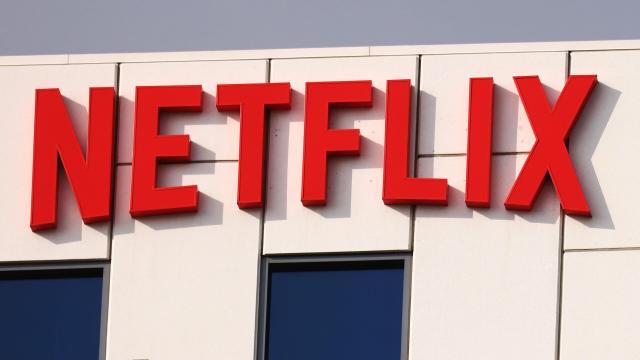Netflix has gained more than 2.4 million paying subscribers over the past three months, the company announced in its 2022 third quarter earnings report. The uptick in customers is more than enough to make up for the back-t0-back drop in memberships the streaming service incurred earlier in the year. The number also exceeds expectations.
Back in July, the company forecast that it would add one million new subscribers this quarter, banking on the release of popular series like the second half of Stranger Things’ fourth season and the fifth season of Cobra Kai to draw in new customers. And apparently, the wager panned out. Netflix chalked this quarters’ growth up to “big hits across TV and film,” like Monster: The Jeffrey Dahmer Story and Purple Hearts. Most of the new subscribers are outside the United States.
In addition to the boosted new subscriber count, Netflix also reported revenue above expectations, at about $US7.9 ($11) billion — a 5.9% increase from the same time last year. However the company’s profits are down about 3% from September 30, 2021. “After a challenging first half, we believe we’re on a path to reaccelerate growth,” the company wrote in its Tuesday letter to shareholders.
For months now, the streaming giant has faced financial difficulty. In the middle of April 2022, the company reported its first subscriber loss in a decade — at a time when analysts has predicted a gain of more than two million. Its stock plummeted in response. Then, the company enacted multiple big layoffs, cutting hundreds of employees, and began to issue warnings about a future password-sharing crackdown, as well as the possibility of ads on the platform.
The second quarter of 2022 also didn’t bode well for Netflix — as subscriber numbers continued to drop (though less than forecast). In the wake of the double user dump, the company started testing and hinting at different versions and features of the proposed password sharing and advertising changes.
Last week, Netflix confirmed that a cheaper, ad-supported subscription plan would be launching in November. The plan will cost $US6.99 ($10) per month in the U.S., exclude some titles because of “licensing restrictions,” and prevent users from downloading shows, according the company’s announcement.
Just yesterday, the streaming service introduced a way to transfer viewer profiles between accounts to U.S. audiences, following pilots in Chile, Costa Rica, and Peru. Although the initial announcement avoided mentioning password sharing altogether, the move comes in obvious preparation for the looming, promised password crackdown, as confirmed by Tuesday’s shareholder letter. Without the ability to transfer profile information to new paying accounts, many peoples’ preferences and algorithms could’ve been otherwise left orphaned and inaccessible.
“Finally, we’ve landed on a thoughtful approach to monetise account sharing and we’ll begin rolling this out more broadly starting in early 2023,” wrote the company. “After listening to consumer feedback, we are going to offer the ability for borrowers to transfer their Netflix profile into their own account, and for sharers to manage their devices more easily and to create sub-accounts (“extra member”), if they want to pay for family or friends.”
Though once basically the only household name in streaming, Netflix has faced increasing competition in recent years. It seems like every media company has its own service, and people are choosing their loyalties in a crowded field of options. The company has been quick to blame its competitors (as well as the war in Ukraine, inflation, and password sharing) for its recent struggles. However, mismanagement at the core of the company’s model might have had something to with it too. Yet, whether or not there is rot deep down in Netflix’s business strategy, the company will clearly survive to fight another quarter.
